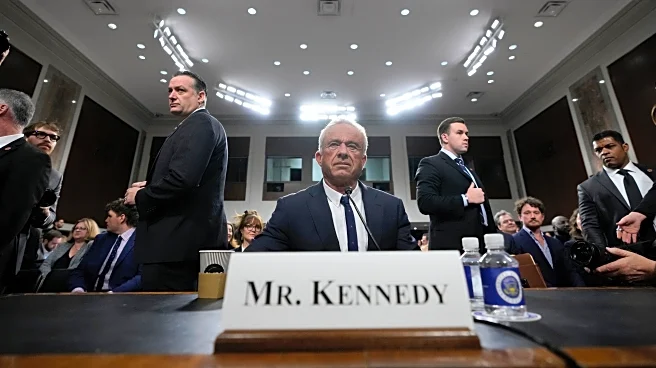What's Happening?
Ukraine is confronting a critical winter, compounded by a looming financial crisis. The country is at risk of running out of funds by February unless Belgium lifts its block on a proposed €140 billion reparations loan using immobilized Russian Central
Bank assets. The EU's plan to exchange these assets for bonds to support Ukraine's defense spending is stalled due to legal concerns and opposition from Slovakia. The situation is exacerbated by the discontinuation of U.S. financial support under President Trump, leaving Ukraine reliant on EU funding amidst political turmoil and corruption allegations.
Why It's Important?
The financial crisis in Ukraine has significant implications for its ability to sustain defense efforts against Russia. The deadlock over the reparations loan highlights the challenges of securing international support, which is crucial for Ukraine's survival and resistance against unfavorable peace deals. The discontinuation of U.S. support further strains Ukraine's resources, potentially impacting its geopolitical stance and stability. The situation underscores the importance of international cooperation and the complexities of navigating legal and political obstacles in crisis funding.
What's Next?
The upcoming EU summit is critical for resolving the funding deadlock, with potential consequences for Ukraine's defense capabilities. If the reparations loan is not approved, alternative funding solutions may be sought, possibly involving a coalition of willing countries. The ongoing corruption investigations in Ukraine could influence political dynamics and international perceptions, affecting future support. The situation remains fluid, with potential shifts in EU and global strategies regarding Ukraine's financial and defense needs.
Beyond the Headlines
The financial challenges faced by Ukraine highlight broader ethical and legal dilemmas in international funding mechanisms. The use of frozen assets for reparations raises questions about legal precedents and the balance between justice and geopolitical strategy. The situation also reflects the complexities of international diplomacy, where legal concerns and political interests intersect, impacting humanitarian and defense outcomes.
















